someone else’s bookshelf
“Help yourself to any books you want” said the hostess suddenly as an afterthought. Conventional politesse but with a down-to-earth note, like ‘this is your scarf isn’t it, don’t forget to take it with you.’ This was at the end of a long January evening with its bottles of red wine, and dinner improvised out of contributions of nems, quiches, sushi, humous dips, lots of leftover Christmas chocolate, with happy, then squally children playing hide and seek around handsome furniture from China and Iran, countries where the couple had lived for a few years. (‘He’ works for the French car company Peugeot ). I had briefly checked out the well-stocked library corner – a lot more densely packed, neatly organised and new-looking than my own since rather than buy books I use the local mediatheques in Antibes and Valbonne for reading matter in English and French. My bookshelves feature a lot of yellowing sentimental attachments to poetry volumes, over-thumbed teenage copies of Dostoevsky and over annotated authors studied years back . Luckily I’m not starved since the mediatheques are well-stocked, international libraries – the sort that you would only find in capital cities ten years back.
I had definitely absorbed too much good red wine to make a cerebral choice at the time - perhaps the advantage was I’d made an uninhibited one and picked up writers I’d censor for myself when fully sober. I did know I was looking for some writing in between pure factual or prose fiction. I’d considered Yasmina Reza and Chahdortt Djavann’s books before in bookshops and libraries without going as far as taking one home to read. Picking a book off someone else’s bookshelf is different though, like seeing a face you know by sight at a friend’s house so now the acquaintanceship might become personal. Iran is what I had in common with the couple whose house we were in that evening through their having lived there and my partner being Iranian. We hadn’t talked much about that link though and the glaring black hole in any conversation of mine about Iran being that I myself have never visited the country. So the choice of Djavann’s book out of the hundreds of similar paperbacks, was motivated by the underlying curiosity in that place- where-I’ve-never-been. I’m always pulled despite myself, to other people’s readings of Iran.
Reza and Djavann are writers whom I know of from media coverage. They both have fairly high profile personalities in France. Especially Reza for her prolific output in theatre, her interviews on cultural chat shows and most recently from being allowed to follow Sarkozy around and make a book out of his electoral campaign which resulted in the book ‘l’Aube, le Soir ou la Nuit’ ‘Dawn, Evening or Night’ because .’tragedy has no place. Nor any particular time. It (happens)’s dawn, evening or night ‘ – there in this quotation you get the fatal hubris full on. Reza will actually use her genius as a playwright (doesn’t the French dramaturge sound so much more potent) to paint a portrait of a Sarkozy of Shakespearean dimensions an excuse for taking on all the big questions - love, ambition, solitude, the transience of passing time - in that terse poetic style, all barricades up and gruff beating heart anyway underneath it all that is her speciality. Here I have to say that I didn’t know she’d written this book until after I’d read the borrowed novella that evening and then started looking her up on the net for some more precise details. I have to confess that if I’d known she was such a glitterati I’d not have bothered to take that slim novella - the first she wrote - home to read. I have an innate prejudice against artists who hold up a mirror to the powerful of the world. OK Shakespeare wrote his tragedies about tyrants but he was living under a regime similar to Saddam Hussein’s Iraq in terms of human rights and had to save his skin by currying favour on a regular basis.
Thursday, January 29
Subscribe to:
Post Comments (Atom)





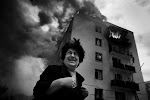



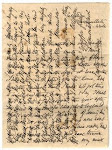
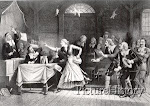
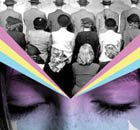
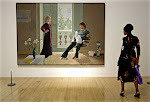

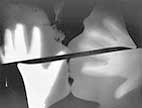









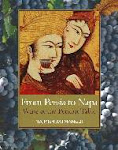

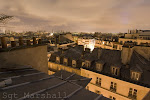




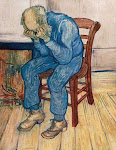



















J'ai choisi dans une librairie "Comment peut-on être français ?" de Chahdortt Djavann pour son titre, française née en Algérie, il m'est arrivé dernièrement à avoir beaucoup de mal à garder cette nationalité, et le titre m'a intriguée. J'ai tant pleuré et sourit. Ce surprenant mélange qui fait qu'on ne peut plus poser le livre jusqu'à la fin tout en ayant peur d'avancer dan sa lecture tant la tension monte...
ReplyDeleteYes Salamandre - a very good résumé of the tension particular to this book, the mix of dread and being unable to let go..interesting what you say about that insecurity and fagility around 'having the right papers' can also affect French nationals - identity papers depending of course on the arbitrary course of historical events.
ReplyDeletePour illustration, je voulais partager avec vous ce poème d'Adamina B, il s'intitule : "Au nom de toi"
ReplyDeleteAu nom de toi
Une foi
Au nom de toi
Une loi
Au nom de toi
Le combat
Au nom de toi
La fatwa
Au nom de toi
Le trépas
Au nom de toi
Moi, toi et tout le monde qui est là
Au nom de toi
Non, je ne crois pas
Je ne vois pas
Qu'au nom de toi
Nous ayons droit
De faire tout ça
Au nom de toi
Et en réponse à tout ça
Les hommes fiers de leurs lois
Font naître des parias
Au nom de toi
Une patrie
Au nom de toi
Là où tu vis
N'est plus chez toi
Au nom de toi
Je pense donc je suis, n'est pas
Descartes nous l'avait pourtant dit
Au nom de toi
Je suis, je ne suis pas
Shakespeare
peut bien rire
Moi, ça me fait froid
Dans le dos...